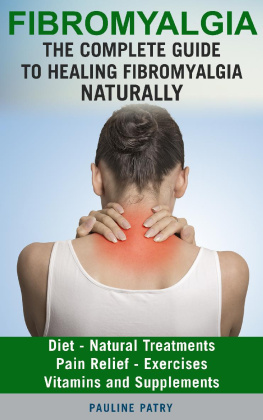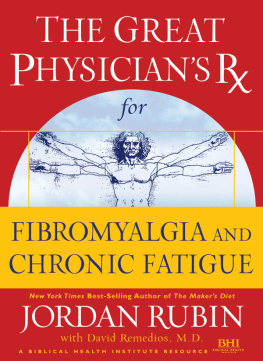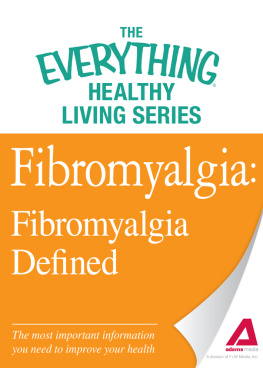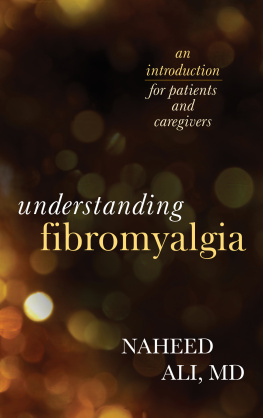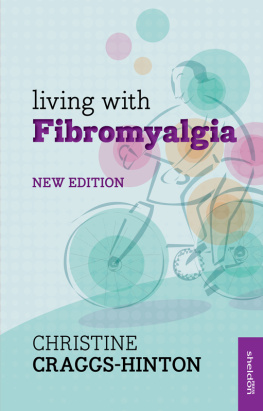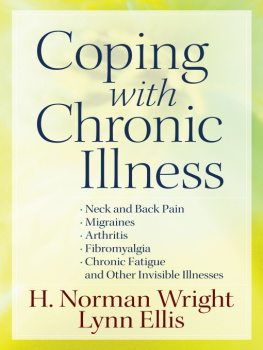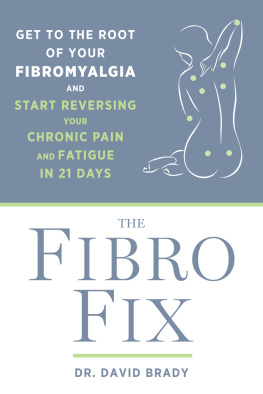Living the best life withFibromyalgia
AlishaNurse M.A
Copyright 2015 by Alisha Nurse
ISBN: 978-0-9931451-6-2
No part of thisbook may be reproduced, scanned, or distributed in any printed orelectronic form without the author's permission. Please do notparticipate or encourage piracy of copyrighted materials in violationof the author's rights. Thank you for your support of the author'srights.
For Sue Jacobs,
& to my fellow fibromyalgia friends
who arefighting for their lives.
Note to the Reader
This book does notprovide medical advice. The suggestions shared in this work reflectwhats worked for the author. Please consult with your doctorbefore starting any new treatments.
Introduction
The goodlife is one inspired by love and guided by knowledge BertrandRussell
In 2010, I was 25when a rheumatologist diagnosed me with fibromyalgia (fms).
A wave of intenseemotion washed over me. Not because I was distraught, it was all downto overwhelming relief. You see, since my childhood I had beensubject to endless doctor visits, blood tests and examinations todetermine the cause of pain, debilitating exhaustion, lack of sleepand other symptoms that I suffered. It was all to no avail. Scrapingthrough life without an explanation and treatment proved difficult.In childhood I was often absent from school and in adulthood, I hadno reason for employers when I was too unwell to work. My social lifewas non-existent.
Years after mydiagnosis, I became far worse before I got any better. Its been along road to reaching this point and after receiving much positivefeedback from my blog about living with fibromyalgia, I decided towrite this handbook highlighting some of the things that have workedfor me in my fight against this chronic, misunderstood condition.
Fibro-who?
When I first heardthe word, I never believed that I would learn to say it with suchease. Try saying it slowly: fi-bro-my-al-gia.
Fibromyalgia. There.
Fibromyalgia is aneurological condition characterised by widespread musculoskeletalpain accompanied by fatigue, sleep, memory and mood issues.Other symptoms include chronic headaches, depression and anxiety,irritable bowel syndrome, Multiple Chemical Sensitivity Syndrome(sensitivities to noise, bright lights, chemicals, medications orfoods), cognitive difficulties (also called fibro fog), allodynia(feeling pain from things that shouldnt be painful, like ticklesor the feel of clothes against ones skin) and hyperalgesia(extreme sensitivity to pain).
No one knows forcertain what causes fibromyalgia, but leading research efforts intothis condition suggest that the most common cause is positionalcervical cord compression,found in 71 percent of fms patients.
In the lead up to mydiagnosis, one doctor emphatically told me that I might havefibromyalgia, but be thankful youre not dying of cancer.
It was particularlypainful to hear these words. While doctors say fibromyalgia is notlife threatening, in many ways it is. Fibromyalgia might not directlycause death but it leaves so many patients mere shadows of theirformer selves, robbing their lives of all things good and fulfilling.
I was grateful that Ididnt have a terminal condition. However, many days I was bedbound, immobilised by overwhelming exhaustion and requiring help tolift myself up. Just the act of getting out of bed knocked the windout of me, and simple tasks like combing my hair or having a showerleft me out of breath, needing a break.
I was at universitydoing my Masters Degree at the time and it was a common thing to findme slumped on desks, fast asleep as I suffered a kind of sleepparalysis, unable to wake myself until my body said it was ready.
Is Alisha alright?I would hear my classmates asking but I couldnt pull myself out ofthe deep slumber to answer.
I was desperate foranswers. I was 25 and I felt like my life had ended before it began.
Not surprisingly,research conducted by Dr Lene Dreyer, a rheumatologist at CopenhagenUniversity Hospital found that a significant number offibromyalgia patients tend to die from suicide, which she linked todepression.
I joined support groupsfor people living with fibromyalgia and I learned about the problemspatients were having at work, with family and in their romanticrelationships due to their diagnosis. I heard of marriages breakingdown, cheating spouses and families calling their loved ones lazy orliars. It wasnt unfamiliar to me. I too had been called lazy,criticised for my constant drowsiness and accused of not making aneffort in relationships.
Not too long after myfirst diagnosis, I saw a second rheumatologist at a FibromyalgiaClinic in London, and he confirmed my diagnosis. He took the time toexplain the condition, provide me with literature, and a long list ofsuggestions, which he asked my general practitioner to implement.These included referrals for physiotherapy and psychotherapy (totreat depression). That was when I started to get a clearerunderstanding of this condition which affects 1 in 25 people in theUK, according to Arthritis Research UK. From there it was a roughroad but its only gotten better, with a few bumpy patches inbetween. I still suffer terribly when my symptoms flare but thistypically happens during stressful periods, and when the seasons arechanging.
It is imperative that Ipoint out the suggestions mentioned in this book are not medicaladvice. I am not a medical professional. I am simply a fibromyalgiapatient who is sharing what has worked for me over the years.
It is a journey which Iam still on, and I have far to go. However I can see the majorprogress Ive made and if I can do it, then so can you. It is myhope that my story will give you strength to walk on, with courageand hope.
Challenges
The gemcannot be polished without friction, nor man perfected withouttrials Chinese proverb
Living withfibromyalgia presents many challenges. The range of symptoms is sovaried, and many of these seem to need individual treatments fortheir management. This means more medication which many patients finddifficult to manage with fibro fog, and without help.
Personally I have beenharping on to the general practitioner about my debilitatingexhaustion, literally begging for a suggestion of medication orsupplement that will help. Each of us battles our demon symptom, theone symptom that is king above all else. For me, thats the chronicexhaustion. But my GP says there is nothing she can recommend exceptfor exercise.
Fibromyalgia createsvicious cycles in patients. My GP believes I will feel better andimprove my exhaustion levels if I can get some exercise. The problemis that I am often too fatigued to do the simplest of tasks, so theidea of exercise is terrifying. At the gym I have only been able tomanage 15 minutes by completely pushing myself, and I felt like I wason the brink of collapse. So I am not motivated to go to the gym butI try to get some stretches and basic steps done at home. Ideally Idopt for swimming but I cant swim (yet). Exercise would also helpmy issue of gaining weight (probably from medication). The moreweight I gain, the more tired I feel. It becomes harder to physicallymove and my mood goes lower. As a result, I comfort eat, I gain moreweight and exercise becomes even harder.
Eating healthy mightappear difficult when a lot of us are only managing to meet the veryminimum requirements to survive. Unless one lives with family membersto help prepare meals, I imagine breakfast, lunch and dinner mightmean pre-packaged or unhealthy fast foods.
The issues of chronicpain and debilitating exhaustion mean that many fibromyalgia patientsare forced to quit their jobs, unable to work or attend school. Thisis another kind of cycle that perpetuates symptoms. At times when Imreally unwell and stuck in bed I find that my knees and muscles getweaker, and it becomes harder to get up and about. I end up feelingwearier. Physical movement becomes more difficult but without it, thestiffer and weaker my muscles get.
Next page


